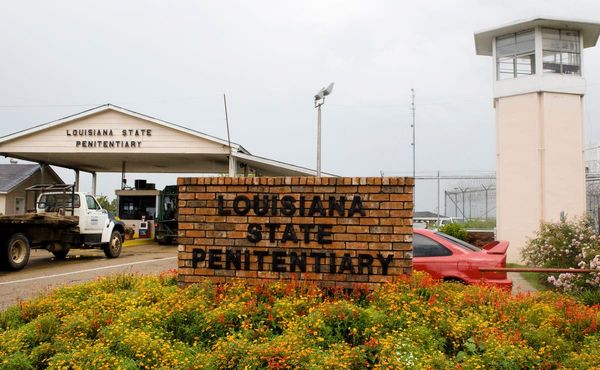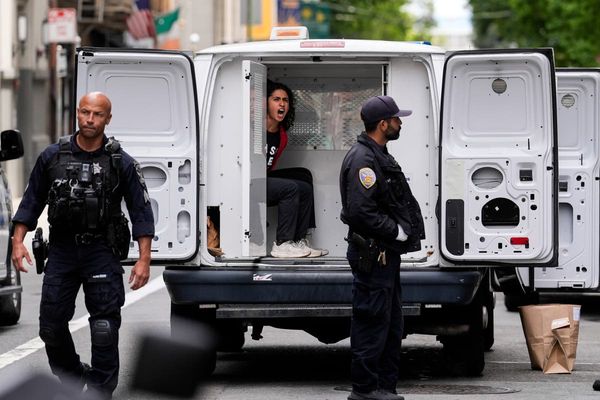
It took Labor more than 15 months to have a rotten week, which is a pretty reasonable record for a first-term government. Rough trots, either self-inflicted or external in origin, are inevitable — it’s the way you respond to them that counts. On that score, Labor did not impress.
It’s still hard to believe that Qantas has been the cause of such a politically damaging run. For decades, Qantas has enjoyed a cosy bipartisan protection racket — one that Labor blithely assumed would continue. But it didn’t account for just how hated former CEO Alan Joyce was, how Qantas would become a lightning rod for discontent about big corporations racking up huge profits while the rest of us struggle with high inflation, and how this would expose weaknesses on Labor’s frontbench.
Caught up in the maelstrom was the government’s aviation green paper, which was suddenly viewed through the lens of how accommodating Labor was being of Qantas. And while certainly weak on that score, some in the media seemed frustrated about the very nature of a green paper, which is for discussion before developing a formal policy document.
“Most people don’t understand green and white papers or protracted bureaucratic processes for official policymaking,” whinged right-wing Australian Financial Review commentator Jennifer Hewett today.
As a senior commentator, Hewett is expected to understand them, and perhaps to note that after the Morrison government — in which a prime minister took over ministers’ jobs without telling them, and substituted announcements crafted purely with the goal of day-to-day political management in mind for real policy — a government developing policy properly through traditional channels is to be welcomed.
But Transport Minister Catherine King deciding on Wednesday to “launch” the green paper at a 7am presser at Canberra Airport the following day looked like half-smart timing. It certainly didn’t prevent a swarm of journalists from attending and peppering King with questions about the Qatar Airways decision — the actual green paper was the subject of just a couple of questions — and it didn’t stop King from again stuffing up her response by returning to Qatari police’s disgusting, misogynist assault on Australian women in 2020, which King had previously ruled in then ruled out as a factor in the decision.
The ongoing mishandling of the Qatar Airways decision — particularly the ability to choose one explanation and stick to it — is what raises questions about the capacity of the Albanese government to overcome serious political dramas. If something this anodyne gets botched, what happens when a real crisis comes along? At no stage has there been any sense that Anthony Albanese’s office has sensed the political threat in perceptions of the decision and brought its authority to bear — to determine a response (reverse the decision, or establish a coherent explanation for it) and ensure ministers stick to it.
That’s what the prime minister’s office is there for, among other reasons. As a result, multiple ministers have been burnt, most particularly King, who has looked like a rabbit in the headlights as she cycled through a series of half-baked explanations. The opposition — which everyone knows would have made exactly the same decision for Qantas — has rightly had a field day.
That’s extended to Parliament where, especially with Albanese abroad yesterday, the government has struggled to assert its authority. Having dullard Richard Marles as acting prime minister meant the government started question time on the back foot, even before the first question he faced was about his use of the RAAF as a taxi service.
In a week that was supposed to be dominated by industrial relations reform, Tony Burke — one of the government’s best debaters — was reduced to having to have a Dorothy Dixer asked about his IR bill.
A competent Labor government — even if it made the dud Qatar Airways decision in the first place — could have used the Qantas crisis to argue that the big economic debate in Australia should be about competition, which is why it has started a treasury taskforce to harden up competition law, and that Qantas’ behaviour is exactly what you should expect when you allow big business to do what it likes.
The appointment of Danielle Wood to the Productivity Commission after Chris Barrett decided to stay in Victoria would have been part of that — apart from being a fantastic appointment by the government, Wood has a strong background in urging greater competition.
And the green paper could have flagged the government’s interest in getting serious about aviation competition — either by tightly regulating Qantas as a monopoly provider, or by contemplating real change via cabotage and opening up international access. Its lame promise to do something about airport slots could have been a lot harder, too.
In other words, a competent government could have used the crisis as an opportunity to prosecute its agenda. But there’s no sign at all of that kind of thinking within the ministerial wing of Parliament House.







